England: FA chairman Greg Dyke says grassroots football 'is in crisis'
- Published
FA boss Greg Dyke on grassroots football 'crisis'
Football Association chairman Greg Dyke has admitted the grassroots game in England "is in a degree of crisis".
Dyke, 67, told the BBC he wanted to invest £250m in new training facilities and improve English coaching standards.
However, his plan to add Premier League B teams into the Football League is in doubt after a report said the reaction from clubs was "not favourable".
"If you go to Germany or Holland we are miles behind in terms of facilities and the number of coaches," said Dyke.
"It is clear we have a real problem with pitches. Local authorities' budgets are being squeezed and most of the pitches are owned by them," added Dyke, speaking as the FA Commission issued its second report after a year-long look at improving English football.
"The maintenance of these pitches is not as good as it used to be and over the last two years there have been swathes of games called off, so it's a real issue.
"There's a degree of crisis in what's happening in grassroots football. Facilities are being lost and local authorities have come to us and said 'what can we do about it?'"
Ex-England defender Danny Mills and FA Commission member on BBC Radio 5 live |
|---|
"I've been watching my boys go through it for 10 years and they didn't play between November and February last season because the pitches were unplayable. |
"It's about creating better and more educated coaches and better facilities for kids to play on. Who in their right mind wouldn't be encouraged by that? |
"You can use a grass pitch for five hours a week, but an astro pitch you can use for 80, so kids have more time to work on their technique." |
Dyke, who has set the England national team the target of winning the World Cup in 2022, wants to create football "hubs" in 30 cities by 2020 and increase the number of top-quality 3G artificial grass pitches in urban areas by 130% to more than 500.
A pilot scheme was unveiled in Sheffield on Friday and will be followed by similar schemes in Birmingham and Liverpool.
It is likely to cost about £50m a year to reach the required target by 2020 - but Dyke is confident the scheme will find plenty of backers, including the Premier League, local government and private companies.
FA chairman Greg Dyke wants only 'elite' foreign players
"We will put some money in, and we hope government will put some in and local authorities will as well," added Dyke.
"The Premier League already puts money into football facilities, but we hope that will increase as the years go on. We're building 25 of these pitches a year but we need at least 100 a year."
Premier League chief executive Richard Scudamore said: "We were consulted by the FA chairman's England Commission as part of its research into the provision of grassroots facilities and coaching, and welcome proposals to enhance both areas.
"Getting this right is imperative to the good health of the game at all levels - players like Raheem Sterling and Calum Chambers have to start off somewhere.
"The Premier League and our clubs will keep playing our part to help ensure the provision of top-quality facilities and coaching is delivered where it is needed most and will have greatest impact."

The Football Association is keen to increase the number of artificial pitches in urban areas
Sports minister Helen Grant added: "I welcome the FA's plans to strengthen the game at the grassroots through improved facilities and coaching.
"I'm keen to see what more we can do to help further improve the nation's facility stock, putting 3G pitches in places that need them most, and I am continuing discussions with the football authorities."
FA commission second report key proposals |
|---|
A 50% increase in the total number of full-size, publicly accessible 3G artificial grass pitches across England, to more than 1,000 |
More than 150 new football-owned and managed football hubs to support the delivery of FA, County FA and professional club youth development and coach education programmes |
More than 50% of all mini-soccer and youth football matches - about 3,750 per week - being played on the best quality artificial grass pitches |
Recruit a further 25 full-time FA coach educators; increase Youth Award Level 3 coaches from 800 to 3,000; increase Advanced Youth Award holders from 200 to 750; increase Pro Licence holders from around 200 to 300. |
Set and deliver a target to significantly increase - above the levels of Football's Inclusion and Anti-Discrimination Plan - the number of qualified coaches from black, Asian and minority ethnic backgrounds and others who are under-represented, including female coaches |
Last year, Dyke set up a commission, which included England manager Roy Hodgson, former national boss Glenn Hoddle and ex-internationals Rio Ferdinand and Danny Mills, to assess the future of the sport in the country.
The commission's first report was published in May and included a suggestion that Premier League teams would field B teams in a newly-formed fifth tier of English football.
However, those plans have not received the support Dyke wanted.
England qualification not enough - Owen
"We knew when we introduced 'B-team' proposals it would be controversial," he said.
"We thought there was only a chance of it happening. We just want the elite kids at the big clubs getting better competition than they're getting and that's what they want."
Nevertheless, Dyke still hopes the idea may be embraced in cup competitions and that the proposal had not been "kicked into the long grass".
He added: "If you look at the Germany team that won the World Cup, every single one of those players played in B-teams. There are still discussions going on.
"In the end we can't force the clubs or the leagues to do it, but the problem is still there. Everyone recognises a problem, but no-one wants to solve it."
Dyke's commission also wants to set and deliver a target to significantly increase, above the levels of the game's Inclusion and Anti-Discrimination Plan, the number of qualified coaches from black, Asian and minority ethnic backgrounds and others currently under-represented, including female coaches.
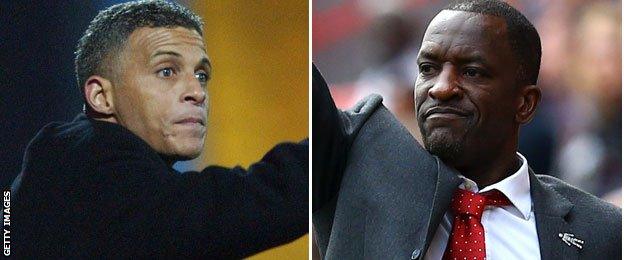
Keith Curle (left) and Chris Powell are currently the only black managers in the top four English leagues
He said: "The law allows you to discriminate in favour of particular backgrounds if they are under-represented and clearly in coaching they are under-represented.
"We have set some targets for people from these backgrounds and let's see how we are going to achieve that. It's the only way we will change. It doesn't mean we will definitely get them jobs - that's a different matter - but what we have to do is get people through the pipelines.
"One of the priorities is to get people of ethnic minorities backgrounds into coaching and through the system."
- Published10 October 2014
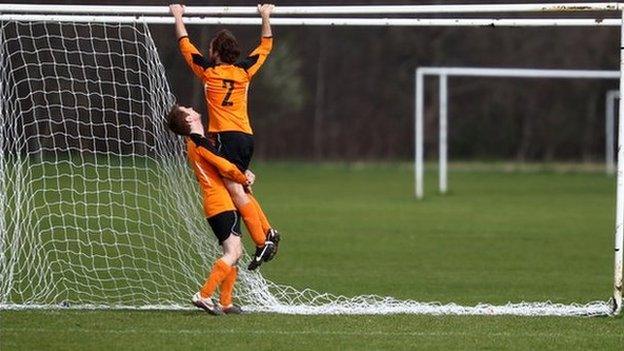
- Published8 May 2014
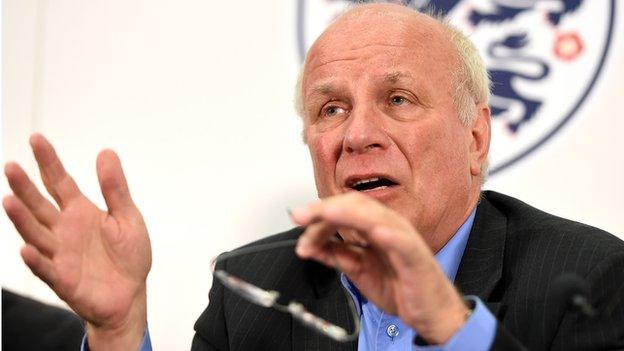
- Published8 May 2014
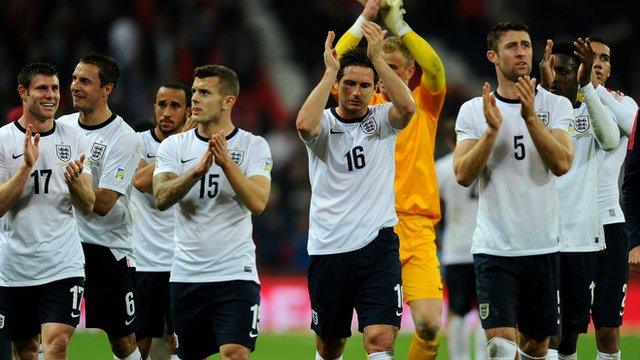
- Published8 May 2014
- Published6 May 2014
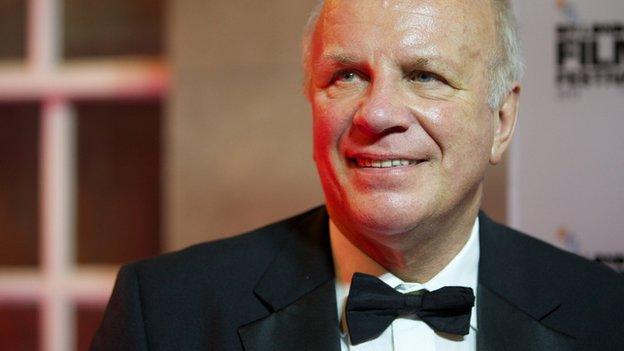
- Published19 October 2013
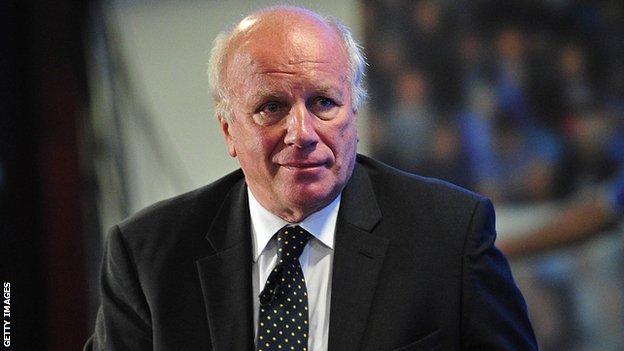
- Published19 October 2013
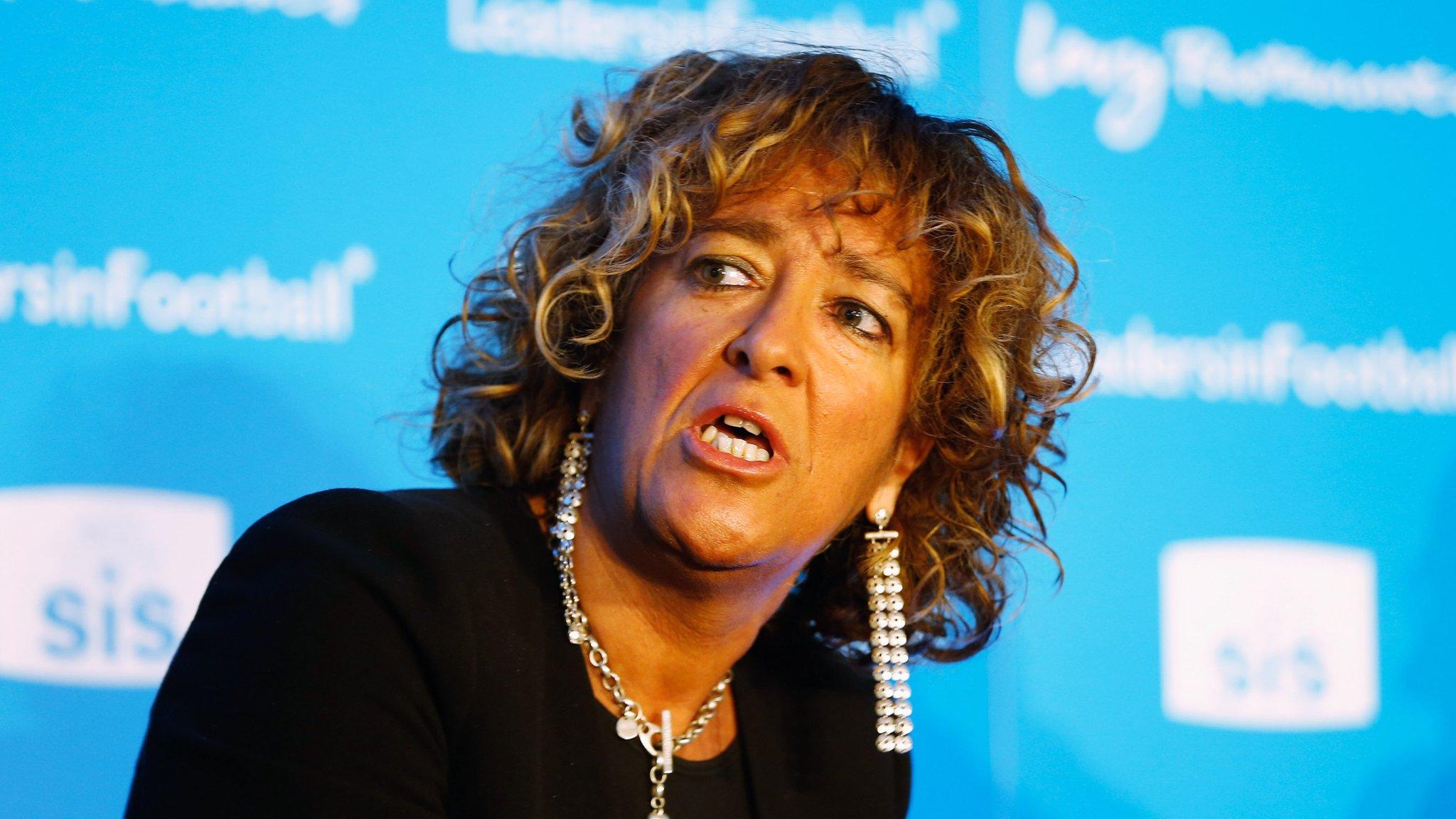
- Published6 December 2013

- Published7 June 2019
